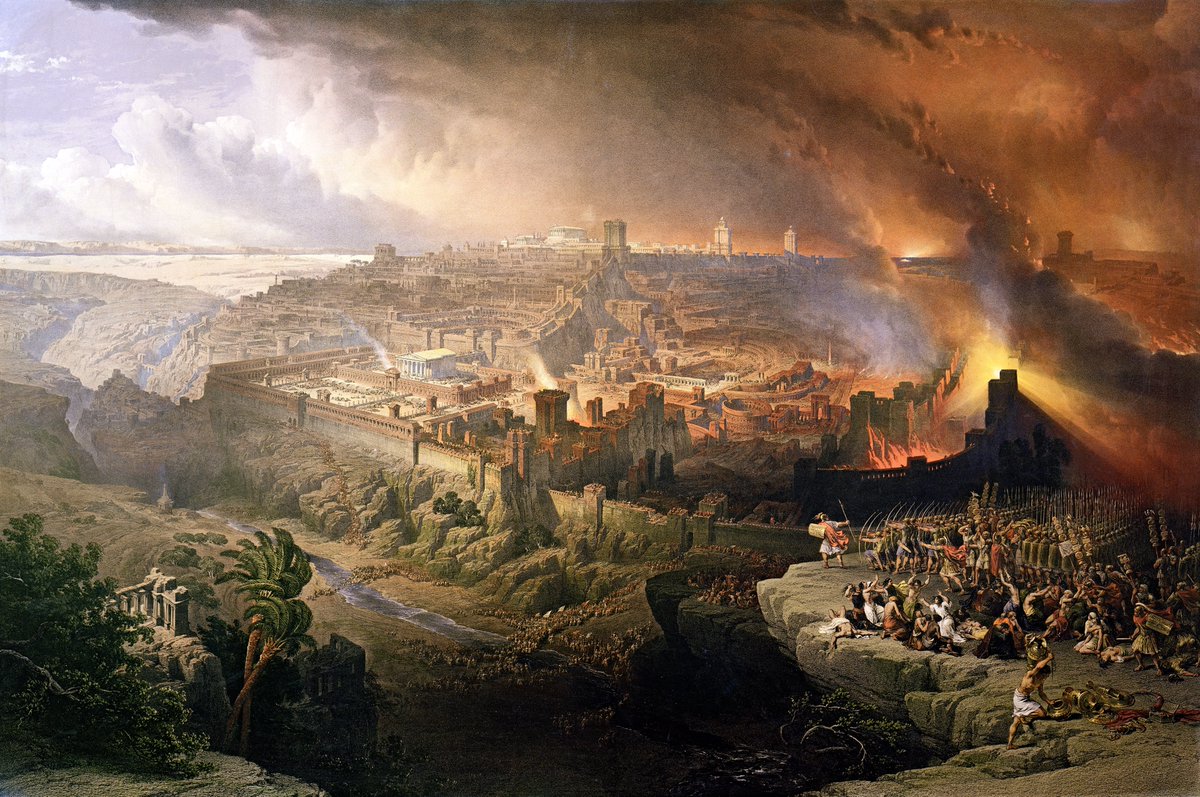
Gospel: As we near the end of the liturgical year, the readings focus on Jesus's words about the "end times," as today (Lk 21). When Luke's Gospel was written (around AD 85) the destruction of the Jerusalem Temple had already occurred. So what meaning does Jesus's predictions... 

...about the fall of the Temple have for us today? Luke Timothy Johnson in "Sacra Pagina" offers us a good summary:
"For most of Luke's readers ... the fact that these events occurred, and in a way consistent with the words of Jesus, must have had a powerful impact...
"For most of Luke's readers ... the fact that these events occurred, and in a way consistent with the words of Jesus, must have had a powerful impact...
"In the first place, it demonstrated graphically how the rejection of the Prophet *did* lead to the rejection of the rejectors, and thus validate Jesus's prophetic claims. In the second place, it lent more weight to predictions concerning the coming of the Son of Man...
"If what the prophet predicted about their past came true, his words about our future can be trusted."
Sacra Pagina, Luke, p. 326.
Image: "The Siege and Destruction of Jerusalem," by David Roberts
Sacra Pagina, Luke, p. 326.
Image: "The Siege and Destruction of Jerusalem," by David Roberts
• • •
Missing some Tweet in this thread? You can try to
force a refresh








